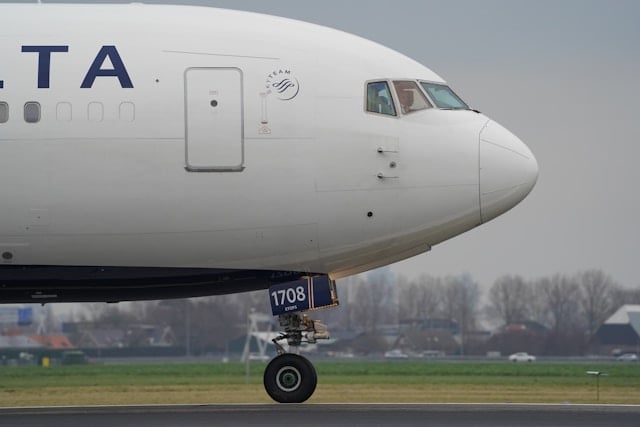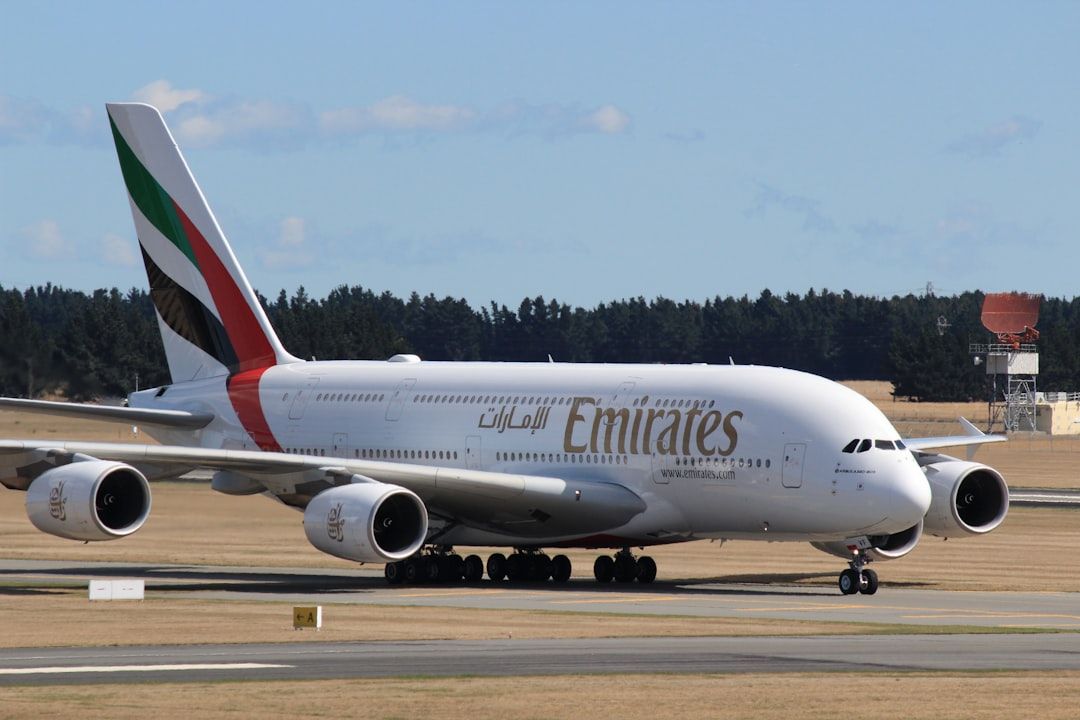Key Takeaways
• American Airlines and United Airlines suspended Middle East flights June 19–22, 2025 due to Israel-Iran conflict.
• United and Delta suspend US–Tel Aviv flights through July and August 2025, disrupting global air travel hubs.
• Flights rerouted or canceled amid security risks; passengers offered refunds, rebooking, and urged to check updates.
American Airlines and United Airlines Suspend Middle East Flights Amid Security Crisis
As of June 19, 2025, two of the largest US carriers—American Airlines and United Airlines—have suspended their direct flights to key Middle East destinations. This sudden move comes after a sharp rise in military conflict between Israel and Iran, which has led to widespread airspace disruptions and increased security warnings across the region. The suspensions are set to last until at least June 22, 2025, but may be extended if the situation does not improve.

This breaking development affects thousands of travelers, disrupts global air travel, and raises important questions for anyone with plans to fly to or through the Middle East in the coming weeks. Here’s what you need to know about the suspensions, why they happened, who is affected, and what steps you should take if your travel plans are impacted.
What Happened? The Immediate Facts
American Airlines has suspended its daily Philadelphia (PHL) to Doha (DOH) service. The last outbound flight from Doha left on June 19, 2025. The airline says the suspension will last until at least June 22, 2025, as it continues to watch the situation closely.
United Airlines has also paused its daily Newark (EWR) to Dubai (DXB) flights through at least June 22, 2025. United has stated it will only resume service “when it’s safe” to do so.
These decisions follow a major escalation in fighting between Israel and Iran, which has made flying over or into the region much riskier. The US Embassy in Qatar has issued a security advisory, urging US citizens to be extra careful, avoid large gatherings, and keep a low profile.
Other major airlines—including Air France-KLM, Air Canada, Lufthansa, Delta, Emirates, and Etihad—have also suspended or rerouted flights to Israel, Iran, and nearby countries. Some of these suspensions are expected to last into July or August 2025.
Why Are Flights Being Suspended?
The main reason for these suspensions is safety. The airspace over parts of the Middle East has become dangerous due to the ongoing conflict. Airlines are worried about the risk of missiles, drones, or other military activity that could threaten planes flying in the area.
US government advisories have played a big role in these decisions. When the US Embassy in Qatar tells citizens to be extra careful, airlines take that seriously. The presence of US military bases in the region, such as Al Udeid Air Base in Qatar, also increases the risk for US-flagged carriers like American Airlines and United Airlines.
According to analysis by VisaVerge.com, the combination of direct security threats and the symbolic importance of US airlines in the region has led to a very cautious approach. Airlines are putting the safety of passengers and crew above all else, even if it means losing money or disrupting travel plans.
Which Flights and Airlines Are Affected?
Here’s a summary of the current suspensions and changes as of June 19, 2025:
- American Airlines: Philadelphia–Doha flights suspended June 19–22, 2025 (may be extended)
- United Airlines: Newark–Dubai flights suspended June 19–22, 2025 (may be extended)
- United Airlines: All US–Tel Aviv flights suspended until July 31, 2025
- Delta Air Lines: All US–Tel Aviv flights suspended until at least August 31, 2025
- Lufthansa, Air France, KLM: Flights to Tel Aviv and Tehran suspended through July 31, 2025
- Emirates, Flydubai: Flights to Iran, Iraq, Israel, and Syria suspended through June 30, 2025
Many other airlines have also changed their schedules, rerouted flights, or issued warnings to passengers. Some Middle Eastern carriers, like Emirates and Etihad, are still operating most routes but are watching the situation closely.
How Does This Affect Passengers?
If you have a ticket with American Airlines or United Airlines for travel to Doha or Dubai in the next few days, your flight is likely canceled. Travelers to Tel Aviv and other cities in the region are also affected by suspensions from multiple airlines.
Key impacts for passengers:
- Cancellations: Your flight may be canceled with little notice.
- Rebooking: Airlines are offering to rebook you on different dates or routes, often without charging change fees.
- Refunds: If you can’t or don’t want to rebook, you can usually get a full refund.
- Delays: Even if your flight isn’t canceled, you may face long delays or rerouting.
- Limited Alternatives: With so many airlines suspending flights, it may be hard to find another way to your destination.
What should you do if your flight is affected?
- Check your flight status: Go to your airline’s website or call customer service for the latest updates.
- Rebook if possible: Most airlines are waiving change fees and fare differences for affected flights.
- Request a refund: If you don’t want to travel, ask for a refund through the airline’s website or customer service.
- Stay informed: Follow updates from the US State Department and your local US embassy. The US State Department’s travel advisory page is a good place to start.
- Consider other routes: If you must travel, look for flights through cities not affected by the suspensions. Be aware that seats may be limited.
What Are Airlines and Governments Saying?
American Airlines has said, “We will continue to monitor the situation with safety and security top of mind and will adjust our operation further as needed.”
United Airlines has stated, “We will resume the service when it’s safe.”
The US Embassy in Qatar has issued a security advisory for US citizens, telling them to be extra careful, avoid crowds, and keep a low profile.
European airlines like Air France-KLM and Lufthansa have also made big changes to their schedules and warned passengers about possible delays or cancellations.
Why Is This a Big Deal for Global Travel?
The suspension of flights to Doha and Dubai is especially important because these cities are major hubs for international travel. Many people flying between the United States 🇺🇸, Europe, Asia, and Africa pass through these airports. When flights to these hubs are stopped, it affects not just direct travelers but also those connecting to other destinations.
The Middle East is a key corridor for global aviation. Disruptions here can cause ripple effects around the world, leading to delays, missed connections, and problems for both passengers and cargo.
Security Protocols and Airline Decisions
Airlines don’t make these decisions lightly. They work closely with government agencies, security experts, and local authorities to assess risks. When the US government issues a warning, airlines take it seriously, especially if they are US-flagged carriers.
The presence of US military bases and assets in the region, such as Al Udeid Air Base in Qatar, adds another layer of risk. Airlines must consider not just the safety of their passengers and crew, but also the political and military situation on the ground.
Industry experts say that the rapid escalation and unpredictability of the Israel-Iran conflict have forced airlines to act quickly and carefully. Safety comes first, even if it means major disruptions to travel and business.
What Should Affected Passengers Do? Step-by-Step Guidance
If your travel plans are affected by these suspensions, here’s what you should do:
1. Check Your Flight Status
– Go to your airline’s official website or app.
– Look for travel alerts or updates about your specific flight.
– You can also call customer service, but be prepared for long wait times.
2. Rebook Your Flight
– Most airlines are allowing you to change your flight without paying extra fees.
– You may be able to choose a different date or route.
– Check the airline’s policy for your specific ticket.
3. Request a Refund
– If you don’t want to rebook, ask for a refund.
– Use the airline’s website or customer service portal to start the process.
– Refunds may take several days or weeks to process.
4. Stay Informed
– Follow updates from the US State Department and your local US embassy.
– Sign up for travel alerts if possible.
– The US Embassy in Qatar’s security alerts provide up-to-date information for US citizens in the region.
5. Consider Alternative Routes
– Look for flights through cities not affected by the suspensions.
– Be aware that many airlines have also changed their schedules, so options may be limited.
– If you must travel urgently, contact your airline for help finding the best route.
Broader Implications: Who Else Is Affected?
Travelers: People with plans to visit or transit through the Middle East face uncertainty, canceled flights, and possible financial losses. Airlines are trying to help by offering flexible rebooking and refunds, but the situation remains stressful.
Airlines: US carriers like American Airlines and United Airlines are losing revenue and facing operational challenges. European and Middle Eastern airlines are also affected, with some suspending flights and others rerouting to avoid dangerous airspace.
US Government: The government’s advisories reflect serious concern for the safety of US citizens and assets in the region. These warnings influence airline decisions and may affect other US-linked activities in the Middle East.
Regional Carriers: Airlines based in the Middle East, such as Emirates and Etihad, are still operating most routes but are ready to make changes if the security situation gets worse.
Historical Context: Has This Happened Before?
Flight suspensions to Israel and nearby countries have happened during past conflicts. However, this is the first time US airlines have stopped flights to major Gulf hubs like Doha and Dubai due to regional conflict.
In the past, airspace closures over Israel, Iran, Iraq, Syria, Jordan, and Lebanon have caused problems for airlines. These closures can happen with little warning and may last for days or weeks.
The current situation is especially serious because it affects not just one country but the entire region. The Middle East is a vital link in global air travel, and disruptions here have far-reaching effects.
What Happens Next? The Future Outlook
Short-Term: The suspensions are officially in place through June 22, 2025, but may be extended if the security situation does not improve. Airlines are reviewing the situation daily.
Medium-Term: Airlines are likely to remain cautious. If fighting continues or spreads, more suspensions or rerouting may happen. Travelers should be ready for ongoing changes.
Long-Term: The situation is unpredictable. Flights will only return to normal when the region becomes safer and airspace is reopened. This could take days, weeks, or even longer, depending on how the conflict develops.
Official Resources and Where to Get Help
If you are affected by these suspensions, use these official resources for the latest information and assistance:
- American Airlines: Customer Service (via official website and app)
- United Airlines: Travel Alerts and Customer Service
- US State Department: Travel Advisories
- US Embassy in Qatar: Security Alerts
- General Aviation Updates: Flightradar24, airline social media channels, and official airline newsrooms
Summary Table: Current US Airline Suspensions to the Middle East (as of June 19, 2025)
| Airline | Route Suspended | Suspension Dates | Status/Notes |
|---|---|---|---|
| American Airlines | Philadelphia–Doha | June 19–22, 2025* | Ongoing review, may extend |
| United Airlines | Newark–Dubai | June 19–22, 2025* | Ongoing review, may extend |
| United Airlines | US–Tel Aviv | Until July 31, 2025 | Monitoring situation |
| Delta Air Lines | US–Tel Aviv | Until Aug 31, 2025 | Monitoring situation |
*Dates subject to extension based on security assessments.
Key Takeaways and Practical Guidance
- If you have travel plans to or through the Middle East, check your flight status immediately.
- Use official airline and government websites for the latest updates.
- Take advantage of flexible rebooking and refund options if your flight is canceled.
- Stay informed about the security situation by following US State Department and embassy advisories.
- Be prepared for ongoing changes and possible delays as the situation develops.
For more details on travel advisories and official guidance, visit the US State Department’s travel advisory page.
As reported by VisaVerge.com, the current suspensions by American Airlines and United Airlines mark a significant moment in global aviation, showing how quickly security concerns in the Middle East can affect travelers around the world. Stay alert, stay informed, and reach out to your airline or embassy if you need help with your travel plans.
Learn Today
Suspension → Temporary stoppage of flights due to safety or operational concerns in a specific region.
Airspace → The designated area of the sky controlled by a country or region for aviation safety.
Rebooking → Changing a flight reservation to a different date, route, or airline, usually after cancellation.
Security advisory → Official warning issued to travelers about potential threats or risks in certain areas.
US-flagged carrier → An airline registered in the United States and operating under US laws and protections.
This Article in a Nutshell
American and United Airlines halted Middle East flights amid rising Israel-Iran tensions. Affecting global travel hubs, safety concerns drive cancellations. Passengers face reroutes, refunds, and delays. Airlines monitor risks closely as conflict impacts key routes, urging travelers to stay informed and adapt plans during ongoing uncertainty in June 2025.
— By VisaVerge.com













